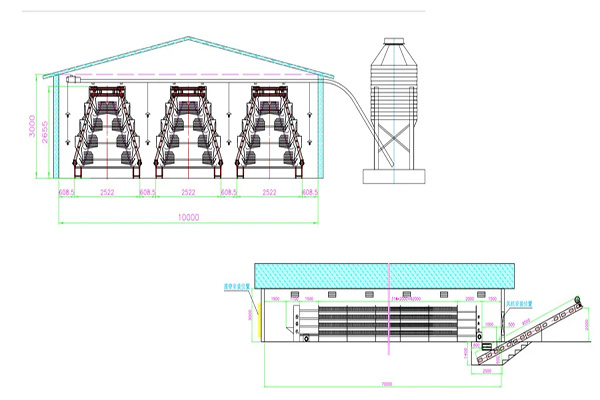How to Start a Poultry Farm with 25,000 Chickens in Nigeria
Embarking on the journey to start a poultry farm with 25,000 chickens in Nigeria can be both exciting and challenging. As an expert in the poultry industry, you’ll need a well-thought-out plan to ensure the success of your venture. Here’s a comprehensive guide to help you get started.
Step 1: Market Research and Feasibility Study
Before diving into the business, conduct thorough market research to understand the demand for poultry products in Nigeria. Analyze your competitors, identify your target market, and understand the trends in the industry. This will help you make informed decisions about your farm’s operations.
Step 2: Choose the Right Location
Select a location that is easily accessible to your customers and suppliers. The site should have a stable water supply, adequate space for expansion, and be in an area with minimal risk of disease outbreaks.
Step 3: Design and Plan Your Farm
Develop a detailed farm plan that includes the layout of your poultry house, equipment, and waste management system. Ensure that your design complies with local regulations and industry best practices.
Step 4: Obtain Necessary Permits and Licenses
Ensure that you have all the necessary permits and licenses to operate a poultry farm in Nigeria. This may include environmental clearance, health permits, and business registration.
Step 5: Purchase High-Quality Chickens
Invest in high-quality chicks that are disease-resistant and have good growth rates. Choose breeds that are well-suited to the Nigerian climate and market demand.
Step 6: Invest in Reliable Equipment
Quality equipment is crucial for the smooth operation of your poultry farm. As a professional in the industry, consider investing in state-of-the-art equipment from trusted suppliers like LIVI Machinery. Our equipment is designed to enhance efficiency, reduce costs, and ensure the well-being of your birds.
Step 7: Implement Effective Biosecurity Measures
Maintain strict biosecurity measures to prevent the spread of diseases. This includes regular cleaning and disinfection of the farm, isolation of new birds, and proper waste management.
Step 8: Train Your Staff
Hire skilled and knowledgeable staff who understand the poultry industry. Provide them with adequate training to ensure they can handle the daily operations effectively.
Step 9: Monitor and Maintain Health
Regularly monitor the health of your birds and implement preventive measures to keep diseases at bay. Use high-quality feed and water to maintain their health and productivity.
Step 10: Market Your Products
Develop a marketing strategy to promote your poultry products. Use social media, local markets, and partnerships with retailers to reach your target audience.
Final Thoughts
Starting a poultry farm with 25,000 chickens in Nigeria requires careful planning, dedication, and quality equipment. At LIVI Machinery, we offer a wide range of high-quality poultry farming equipment and services to help you achieve success. Contact us today to discuss your needs and let us be your partner in this exciting venture.

